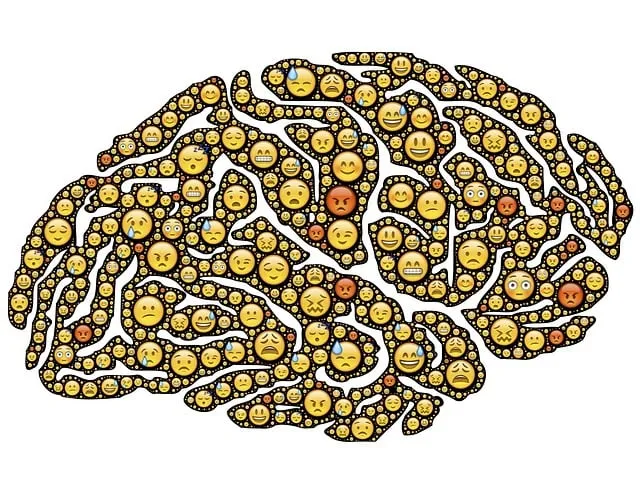The Kaiser Permanente Behavioral Health Center Englewood focuses on mental wellness by developing comprehensive self-assessment tools. These tools aim to empower individuals through early intervention and informed decision-making regarding their mental health, complementing existing programs like Mental Wellness Coaching. By integrating culturally sensitive and accessible features, the center ensures effective assessments tailored to diverse individual needs, promoting sustainable mental wellness. The strategic design process involves pilot testing, regular reviews, and integration into platforms like the Mental Wellness Podcast Series, demonstrating the center's commitment to mental health advocacy.
At the Kaiser Permanente Behavioral Health Center Englewood, there’s a growing recognition of the importance of mental wellness self-assessment tools. This article explores the development of such tools, from understanding the pressing need within the healthcare center to designing effective and culturally sensitive assessments. We’ll delve into the step-by-step process of creation, testing, and implementation, ensuring accessibility for diverse populations. By integrating these tools, Kaiser Permanente aims to enhance patient care and improve mental health outcomes.
- Understanding the Need for Self-Assessment Tools at Kaiser Permanente Behavioral Health Center Englewood
- Designing Effective Mental Wellness Self-Assessment Tools
- Integrating Cultural Sensitivity and Accessibility in Tool Development
- Testing, Refining, and Implementing the Self-Assessment Tools: A Step-by-Step Approach
Understanding the Need for Self-Assessment Tools at Kaiser Permanente Behavioral Health Center Englewood

At Kaiser Permanente Behavioral Health Center Englewood, recognizing the importance of mental wellness is paramount. The center understands that self-assessment tools play a crucial role in empowering individuals to take charge of their mental health. With a growing demand for accessible and effective resources, developing comprehensive self-assessment tools has become an integral part of their strategy. By offering these tools, Kaiser Permanente aims to facilitate early intervention and support individuals in navigating their mental wellness journeys.
The need for such initiatives is evident, especially given the rising rates of mental health concerns nationwide. Self-assessment tools can help individuals identify potential issues, understand their emotional well-being, and make informed decisions about seeking professional help. Moreover, these resources complement existing programs like Mental Wellness Coaching Programs Development, enhance communication strategies, and provide crisis intervention guidance, ensuring a holistic approach to behavioral health care at the center.
Designing Effective Mental Wellness Self-Assessment Tools

Developing effective mental wellness self-assessment tools is a crucial step in promoting individual well-being, particularly in communities like those served by Kaiser Permanente behavioral health centers, such as Englewood. These tools play a pivotal role in empowering individuals to take charge of their mental health and make informed decisions about their emotional well-being. A robust self-assessment should not only identify existing issues but also provide insights into personal strengths and areas for improvement.
By incorporating aspects like Emotional Regulation strategies, Self-Care Routine Development for Better Mental Health, and Trauma Support Services, these assessments can become more comprehensive and tailored to individual needs. For instance, questions or prompts that encourage reflection on coping mechanisms and their effectiveness can help users identify healthy emotional regulation practices. Equally important is the opportunity for users to articulate their self-care routines and potential barriers to maintaining them, fostering a path towards sustainable mental wellness.
Integrating Cultural Sensitivity and Accessibility in Tool Development

In developing mental wellness self-assessment tools, integrating cultural sensitivity and accessibility is paramount to ensure effectiveness and inclusivity. At the Kaiser Permanente behavioral health center Englewood, this involves considering diverse cultural backgrounds, beliefs, and experiences in the design phase. For instance, when creating assessments for stress reduction methods, it’s crucial to incorporate strategies that resonate with various cultural contexts, avoiding those that might be perceived as offensive or irrelevant. Empathy building strategies should also be tailored to foster understanding between different cultures, promoting a safe and supportive environment for self-assessment.
Self-awareness exercises play a significant role in this process by encouraging individuals to explore their emotions and thoughts while being mindful of cultural influences. Accessible tools should provide options that cater to different learning styles, language preferences, and technological capabilities. This inclusivity not only enhances the accuracy of assessments but also encourages community members from diverse backgrounds to engage with mental wellness resources, aligning with Kaiser Permanente’s commitment to providing culturally competent care at its Englewood center.
Testing, Refining, and Implementing the Self-Assessment Tools: A Step-by-Step Approach

Testing, refining, and implementing self-assessment tools for mental wellness is a meticulous process that requires strategic planning. At the Kaiser Permanente behavioral health center Englewood, professionals embark on this journey by first designing tools tailored to assess various aspects of mental health, including stress management, burnout prevention, and conflict resolution techniques – all essential components for overall well-being.
This step-by-step approach involves pilot testing with a diverse group to gather feedback, identify areas of improvement, and ensure cultural sensitivity. Once refined, these tools are integrated into existing programs and platforms, such as the Mental Wellness Podcast Series Production, making them accessible to a wider audience. Regular reviews and updates are conducted to maintain their effectiveness in addressing evolving mental health needs.
The development of mental wellness self-assessment tools tailored for the Kaiser Permanente Behavioral Health Center Englewood is a significant step towards enhancing patient care. By integrating cultural sensitivity and accessibility, these tools empower individuals to take charge of their mental health. Through a comprehensive testing and refinement process, the center can ensure these assessments accurately reflect the diverse needs of its population, serving as an effective first step in navigating the complex landscape of behavioral health.






